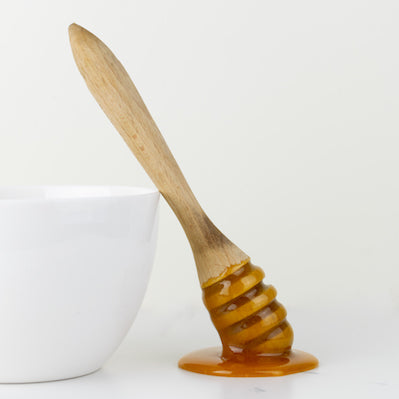
Manuka Honey for Eczema
What are the symptoms of eczema?
People with eczema tend to have an overactive immune system that, when triggered by an external or internal substance, responds with inflammation. This inflammation causes the common symptoms of most types of eczema, such as red, irritated, and painful skin.
Eczema often results in dry, scaly, and itchy skin, typically accompanied by irritation. The most common areas where eczema appears include the insides of the elbows, hands, knees, and face. More severe cases of eczema can lead to cracked and bleeding patches of skin.
What causes eczema?
The exact cause of eczema is unknown. However, for most types of eczema, researchers believe that a combination of genes and triggers is involved. Eczema affects everyone differently, and what triggers it in one person might not be the same for another.
Eczema is thought to be linked to a weakened immune system, leading to a reaction to bacteria that come into contact with the body.
Common irritants include:
- Cigarette smoke
- Soaps and household cleaners
- Fragrances
- Certain fabrics (wool, polyester, feathers...)
- Metals (especially nickel)
- Certain substances in shampoos and lotions
- Paraphenylenediamine used in leather dyes and temporary tattoos
- Certain foods (peanuts, milk, soy, wheat, fish, and eggs)
How can Manuka honey help treat eczema?
Medical-grade Manuka honey (MGO 514+ and higher) is used in hospitals worldwide, as it has been clinically proven to promote wound healing, fight and reduce the risk of infection, while also helping retain moisture in the skin and providing soothing relief.
Nutrimel’s Manuka honey helps alleviate symptoms of eczema and dermatitis, such as dry and irritated skin.
How to use Manuka honey to treat eczema:
- Apply Nutrimel Manuka honey to one or more affected areas of the skin overnight (make sure your hands are clean!).
- Carefully cover the area with gauze or a bandage.
- Leave the bandage on overnight.
- In the morning, gently remove the bandage.
In fact, many studies now point to medical-grade Manuka honey as a moisturizing treatment for eczema. Research suggests that the higher the Manuka factor, the better the quality and antimicrobial effect. However, we recommend consulting a professional in cases of severe eczema or any other condition.
Additional tips for managing eczema:
Along with using Manuka honey, certain lifestyle habits can help:
- Stay hydrated: Drink plenty of water.
- Avoid added fragrances: These can be found in lotions, shampoos, soaps, or moisturizers. While these fragrances may smell nice, they often cause tingling and dry skin when applied topically. Opt for natural, fragrance-free products specifically designed for sensitive skin.
- Keep your nails short: Eczema can be very uncomfortable and cause a lot of scratching. Even the most disciplined individuals may struggle to avoid scratching completely. Keep your nails as short as possible to prevent further damage to your skin if you do scratch the affected area. Also, keep the inside of your elbows and back dry to avoid sweat buildup.
- Wear breathable fabrics: Try to wear natural, breathable fabrics like cotton and linen. Synthetic fabrics like polyester tend to trap more heat and sweat, which can worsen problem areas or trigger new flare-ups. Wear loose-fitting clothing that isn’t too tight or close to the skin.
- Cold shower or bath: Many people step out of the bath or shower, grab a towel, and rub their skin dry. Instead, opt for a cold shower or bath if you’ve been sweating heavily.
